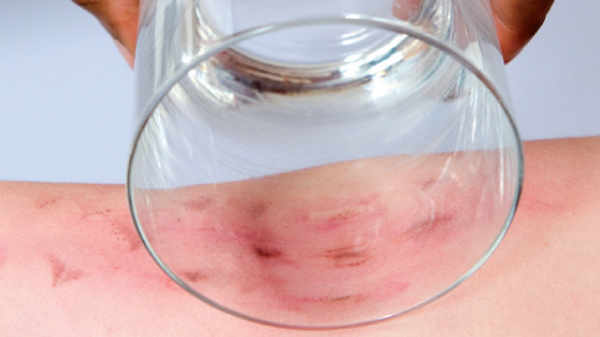Joe Parker, a ‘sporty, full of beans’ Mont Nicolle primary school pupil, died just hours after falling ill in 1994.
Today, 21 years since his death, Joe’s parents Nick and Jenny are backing a new vaccination campaign to protect Island teenagers from the Meningococcal W (MenW) strain of the disease – the same strain of the disease which killed their son.
Following Joe’s death the couple and their daughter Amy set up the Jersey branch of the Meningitis Trust, which has since raised more than £100,000.
Mr Parker said that they wanted to help fund research to develop a vaccination against MenW so no other family would have to endure the same heartbreak that they had.

Joe fell ill while at school days after returning from a family holiday in Rhodes.
Mr Parker, a 55-year-old civil servant from St Brelade, said: ‘He passed away in his sleep. It’s still raw now.
‘He was an ordinary lad, very sporty and into his football. He was full of life, so full of beans.
‘I’m pleading that every parent gives their consent so that their child can be vaccinated.
‘Please don’t ignore this disease threat – for the sake of a quick injection, I would urge all parents of young people in school years ten to 13 to ensure their children are protected.’

- If a clear glass is pressed firmly against the skin and the rash doesn’t fade, it’s a sign of meningococcal septicaemia.
- A person with septicaemia may have a rash of tiny pin pricks that later develops into purple bruising.
- Suspected cases of meningococcal disease, even in the absence of a non-fading rash, are a medical emergency, and immediate medical help should be sought to ensure very early diagnosis and urgent treatment.
Earlier this year the vaccine was made available to Islanders going to university but the Health Department has now secured 4,000 more doses which will be offered to pupils in Years ten, 11, 12 and 13 throughout November.
The vaccination programme comes after cases of MenW rose sharply in the UK – from 11 recorded cases in 2009 to 117 in 2014.
Dr Susan Turnbull, Medical Officer of Health, said: ‘This MenW strain of bacteria is very aggressive; it has a higher than usual death rate (13%) amongst those who become ill with meningitis and/or septicaemia.
‘With new supplies of the vaccine we have the means to drastically reducing the risk of it causing a tragedy for a family or families here in the Island.’
Dr Linda Diggle, head of healthcare programmes, who co-ordinates the childhood programme of vaccinations in Jersey, said the vaccine had ‘an excellent safety record’.
She added: ‘As with all vaccinations, we’d expect some people to have some slight soreness, redness or swelling in their arm at the site of the injection.
‘Occasionally they may also get a headache, but any after-effects should resolve within a day or two.
‘Vaccination is by far one of the safest things that medicine can offer and, as always, prevention is much better than cure.’
Meningococcal disease mostly affects young babies and children – in such cases the symptoms may include:
- a high fever, with cold hands and feet
- vomit and refusal to feed
- feeling agitated and not want to be picked up
- becoming drowsy, floppy and unresponsive
- grunt or breathe rapidly
- an unusual high-pitched or moaning cry
- pale, blotchy skin, and a red rash that doesn’t fade when a glass is rolled over it
- a tense, bulging soft spot on their head (fontanelle)
- a stiff neck and dislike bright lights
- convulsions or seizures
Meningococcal disease can also affect older children, teenagers and adults; in these cases the symptoms may include:
- a fever, with cold hands and feet
- vomiting
- drowsiness and difficulty waking up
- confusion and irritability
- severe muscle pain
- pale, blotchy skin, and a distinctive rash (although not everyone will have this)
- a severe headache
- stiff neck
- sensitivity to light (photophobia)
- convulsion or seizures

HAVING supported Arctic Monkeys, The Rolling Stones and Red Hot Chili Peppers it was time for Saturday’s headliner The Vaccines to enjoy the limelight.
Opening with Handsome and ending with the very well known If You Wanna, their set also included the slow, throbbing drums of Dream Lover to the high-voltage, flashing lights extravaganza that was Ghost Town.
There were also distinct notes of nostalgia – the lyrics in Wetsuit ‘I’ll rest on childhood memories’ were particularly pertinent to lead guitarist Freddie Cowan who recalled ‘amazing memories’ of Jersey.
He said: ‘My granny used to live here so I used to come here every summer for years. I’d be very happy to live in Jersey.’
The Vaccines, despite having evolved through various different identities including The Catholics and The Red Indians, also would like to advise Jersey teens heading off to university this year ‘Get some vaccines!’ – referring to the meningitis W vaccine which was being offered to 18-year-olds at the time.

IT’S 2 pm on a sunny Wednesday afternoon and I’ve just given my five-month-old son his first taste of Calpol.
Not because he’s ill, but because he’s just had a rather large needle shoved into his increasingly podgy upper thigh and apparently the paracetamol suspension will help to ward off a fever.
The vaccination in question was for meningitis B, and it has just been introduced in the UK and Jersey.
All babies born after 1 July are being offered the vaccine as part of their routine immunisations, and babies born from May onwards are being offered it as part of a catch-up programme.
My son, who was born on 22 April, therefore just misses out.
Cue angry mummy noises, grumbles about how all babies deserve to be treated the same, how dare they deny my son this potentially life-saving vaccine and so on and so forth.
And that is exactly how I reacted – at first.
And then I asked about getting the vaccine privately.
And it was then that I began to understand.
You see, the vaccine costs a whopping £133 per injection and babies need a number of immunisations over their first few months of life – up to three in some cases.
The vaccine is also in short supply.
Not every parent, even if they do have the money, will decide to have their baby immunised.
There are pros and cons, risks and mitigation to consider, and it is a very personal decision.
We are lucky that we can afford to vaccinate our child privately – I just feel sorry for those who would like to, but can’t.
But there is a more general point to be made here, and one that applies to all of us, regardless of our personal circumstances, the age of our children, or if we choose to have children at all.
Because at a time when the States are scrabbling to avoid an estimated shortfall of £145 million by 2019 and all sorts of cost-cutting measures are being considered, increasing numbers of Islanders are likely to feel bereft after missing out on something that is provided by the government, or having it removed or changed in some way.
It is right that we, as taxpayers, stick up for what – and who – we believe should be protected from these cuts.
But we also have to accept – particularly those of us in the firing line who can perhaps afford to take some of the slack – that times are tough and the money has to come from somewhere.
And, arguments about who is to blame for the situation in the first place aside, that is a really tough one to accept.
Because naturally we are selfish beings and, quite rightly, we look out for our own interests and those of our family.
Most, if not all, of what government does and provides has an impact on people, some vulnerable, some less so; some small groups, some larger; and some who need more help than others.
What’s more, no one ever likes paying tax – you are giving away your hard-earned cash, after all – so measures such as changes to mortgage relief are never going to go down well.
As with the meningitis B vaccinations, however, there does have to be a limit, a cut-off, a line drawn somewhere along the way.
It’s a simple fact of life, like the death and taxes the famous proverb mentions.
We, as an Island, simply cannot afford to pay for costly immunisations for all, particularly when research shows that certain groups are a lot less vulnerable than others, just as we cannot go on spending more than we are bringing in.
As individuals do with their household budgets, it is about spending money wisely and targeting the right areas where savings can be made.
Thankfully, in this case it is not up to us to decide what those are, although we will all certainly have our own opinions, some of which will be voiced more loudly than others.
It is worth remembering that we, the public, choose the politicians whose job it is to approve the measures and the spending of the States in years to come.
They certainly won’t get it right for all.
And the situation we find ourselves in at present isn’t a position that our elected representatives or the civil servants running the departments want to be in either.
But there is a job to be done and we are all likely to need to play our part.






